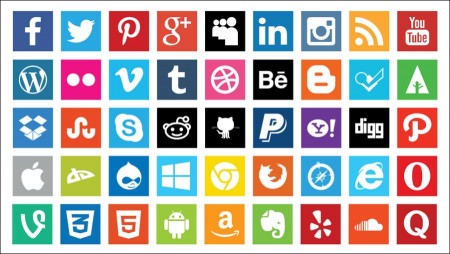One firm collects everything you may have said or done online in the past seven years.
Companies have long used the criminal background checks, credit reports and even research on Google and LinkedIn to probe the past lives of potential employees. Now, some companies are requiring job applicants also pass a background check of social media.
A start-up years, social intelligence, scrapes the internet for all potential employees may have said or done online in the last seven years.
He then assembles a dossier with examples of professional awards and charitable work, as well as negative information that meets specific criteria: proof online racist remarks, references to drugs, sexually explicit images, messages text or videos, flagrant displays of weapons or bombs and clearly identifiable violent activity.
“We are not detectives,” said Max Drucker, CEO of the company, based in Santa Barbara, Calif. “All that we climb is what is publicly available on the Internet today.”
The Federal Trade Commission, after initially raising concerns last fall about Social Business Intelligence, the company is determined in accordance with the Act, the Fair Credit Reporting, but the service still alarms privacy advocates who say that invites employers to view information that may not be relevant to job performance.
And what a flattering relevant information has led to job offers being withdrawn or not? Mr. Drucker said that a prospective employee was found using Craigslist to look for OxyContin. A woman posing nude in the pictures she has set up a site for sharing the picture did not get the job she was looking for in a hospital.
Other background reports have been found examples of people who are anti-Semitic comments and racist remarks, he said. Then there was the job seeker who belonged to a Facebook group, “is America. I would not have to press 1 for English.” This raises a question. “Does that mean you do not like people who do not speak English?” Asked Dr. Drucker rhetoric.
Mr. Drucker said that his goal was to conduct pre-employment to help companies meet their obligation to conduct fair hiring practices and consistent while protecting the privacy of job applicants.
For example, he said reports remove references to religion of any person, race, marital status, sexual orientation, disability and other information protected by federal employment, where companies are not supposed to ask about during interviews. In addition, applicants must first consent to background checks, and they are informed of any adverse information found.
It supports research to reduce the risk that employers may confuse the candidate working with someone else or displayed on the Information Society that is not legally admissible or relevant. “Googling someone is ridiculously unfair,” he said. “An employer may discriminate against someone inadvertently. Or worse, they face all kinds of allegations of discrimination.”
Marc S. Rotenberg, president of the Electronic Privacy Information Center, based in Washington, said that employers have the right to gather information to make a decision on the expertise of job-related, but concerned that “employers should not judge what people do in their private life away from the workplace.”
Less than a third of the surface data firm Mr. Drucker just like the major social platforms like Facebook, MySpace and Twitter. He said most of the negative information about job candidates comes from web searches found deep to comment on blogs and messages on small social sites like Tumblr, the blogging site, as well as Yahoo user groups, e-commerce sites, message boards and even Craigslist.
Then there are the photos and videos that people post – or are tagged in – on Facebook and YouTube and other sharing sites like Flickr, Picasa, Photobucket and Yfrog.
And there are pictures and videos that seem to get most people in need. “Sexually explicit pictures and videos are beyond understanding,” Mr. Drucker said. “We see such blatant displays of weapons. And we see a lot of illegal activities. Many, many pictures of drug use. ”
He recalled a man who had 15 pages of photos to show with different guns, including an assault rifle. Another man included pictures of himself standing in a greenhouse with a large marijuana plants.
Given the complex “conditions of service” agreements on most sites and Web applications, said Rotenberg people do not realize that comments or content that they generate are publicly available.
“People are led to believe that there is more limited communication that there is indeed, in many cases,” he said, noting that frequent changes to Facebook’s privacy settings in recent years may put people at risk to find a job today because of the personal information they may have inadvertently made public.
“What Facebook did was to take personal information from people they have available to family and friends and make this information more widely available to potential employers,” said Mr. Rotenberg, whose organization has several complaints pending at the Federal Trade Commission on the privacy settings of Facebook.
Joe Bontke, outreach manager for the Office of Equal Employment Opportunity Commission in Houston, said he regularly reminds employers and human resource managers about the risks of violation of federal rules and laws against discrimination in employment using the online search in hiring decisions.
“The things you can not ask in an interview are the same things that you can not research,” he said, which includes the full range of information on the age of a person, sex, religion, disability, national origin and race.
However, he added that 75 percent of recruiters are required by their companies to research candidates online. And 70 percent of recruiters in the report that the United States they have rejected candidates because of information online, he said.
Dave Clark, owner of Advanced Impulse Communications, a telecommunications company in Southern California, began to rely on social intelligence for screening background, because it said the company needed a formal strategy and standards before assembling information online about candidates. “They provided us a standardized arm’s length how to use this additional information to make better hiring decisions,” he said.
About half of all businesses, based on government and private investigations, are now using credit reports as part of the hiring process, except in states that limit or restrict their use. As with background checks of social media, there are concerns about information that appeared. The equal employment agency filed a lawsuit last December against the Company Kaplan Higher Education, accusing it of discrimination against black job seekers in the way we use credit history in its hiring process.
But it is not unusual for senior high-level executives in many companies to submit to background checks even more complete by a private firm to survey.
“We live in a world where you have an incredible amount of information and data on all officers,” said Ann Blinkhorn, an executive recruiter in the converging technologies, media and communications industry. “I think it puts the burden on the recruiter and the hiring manager to be truly reflected on what is important and not important in the hiring decision.”
Views: 107



